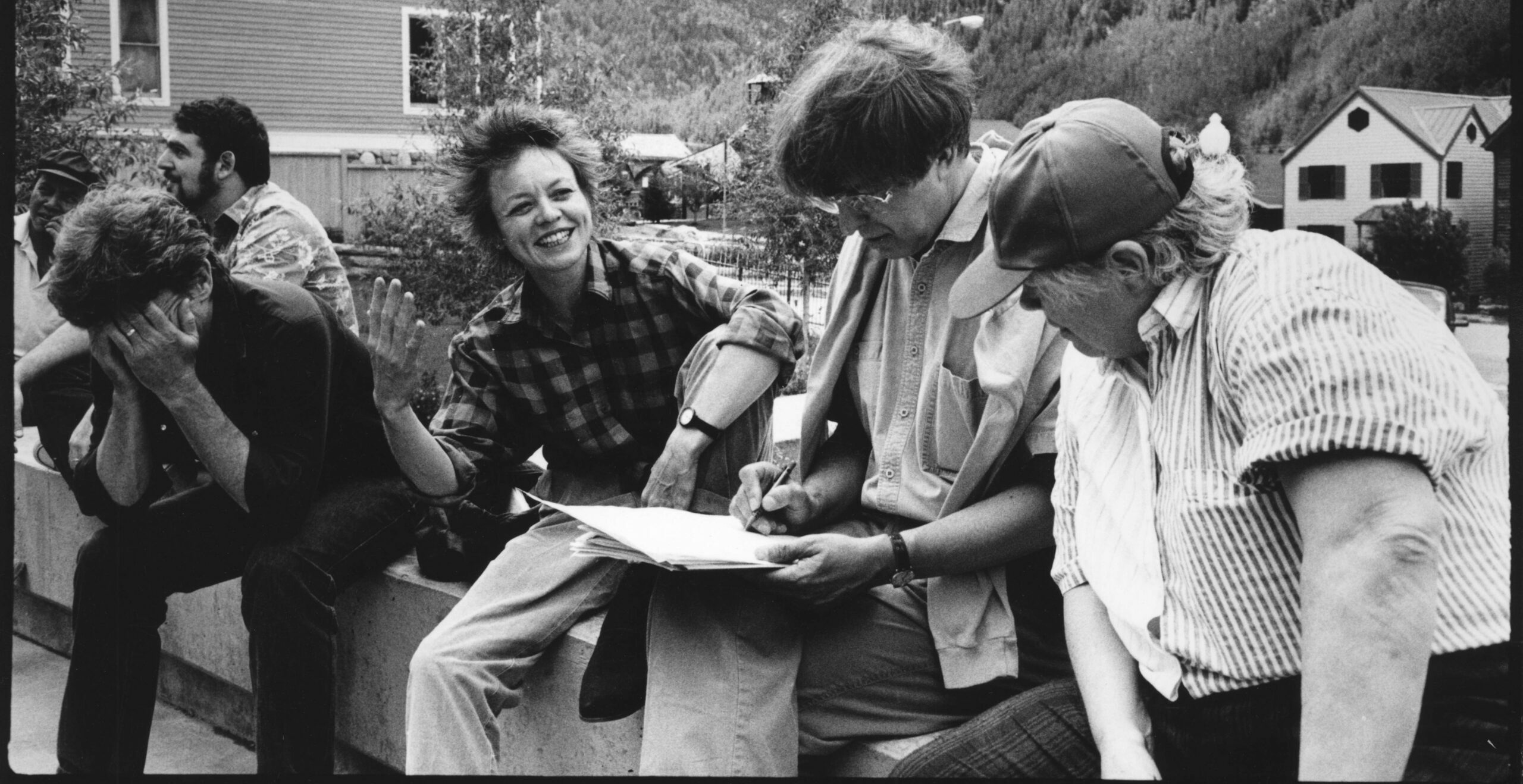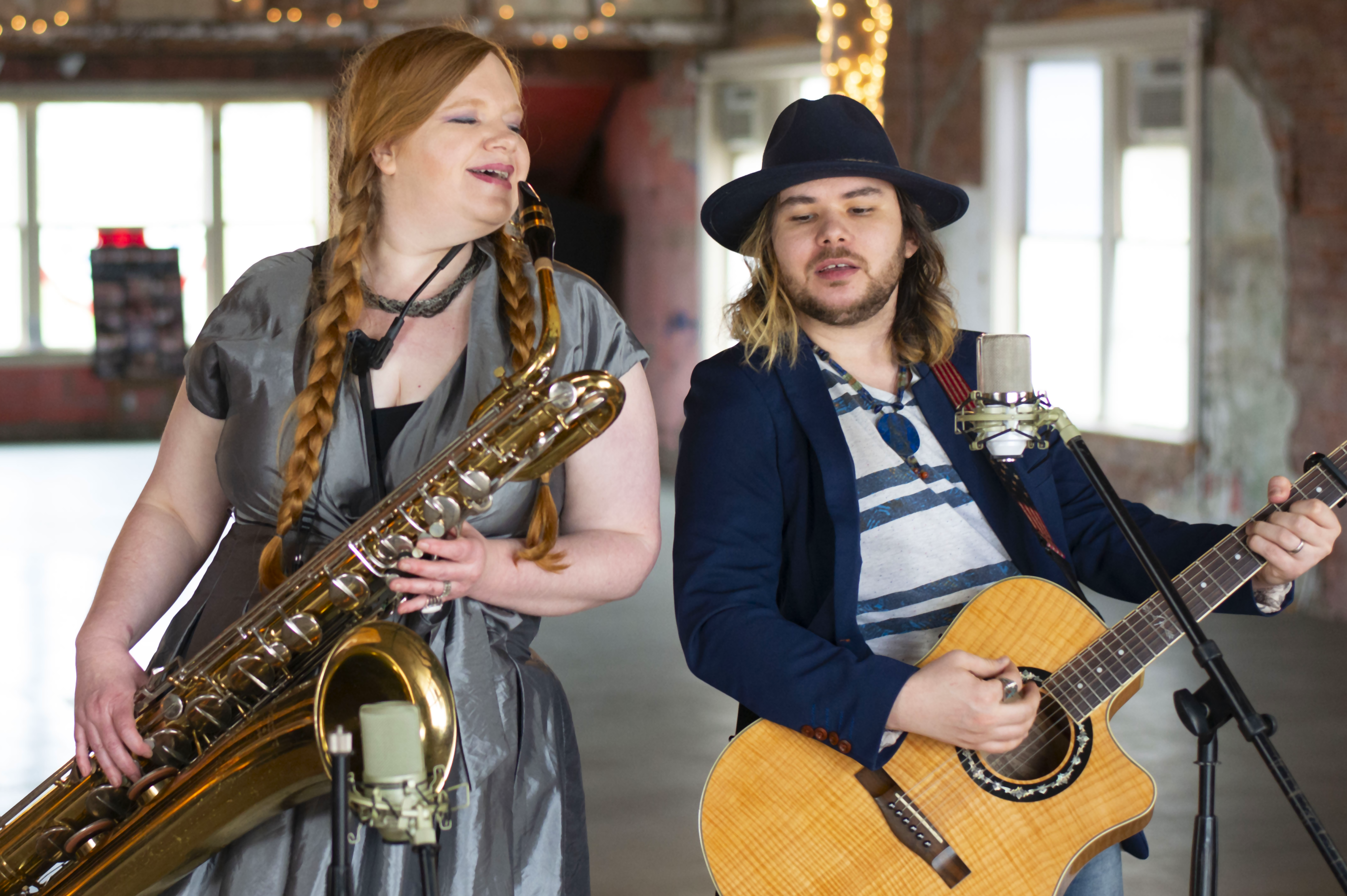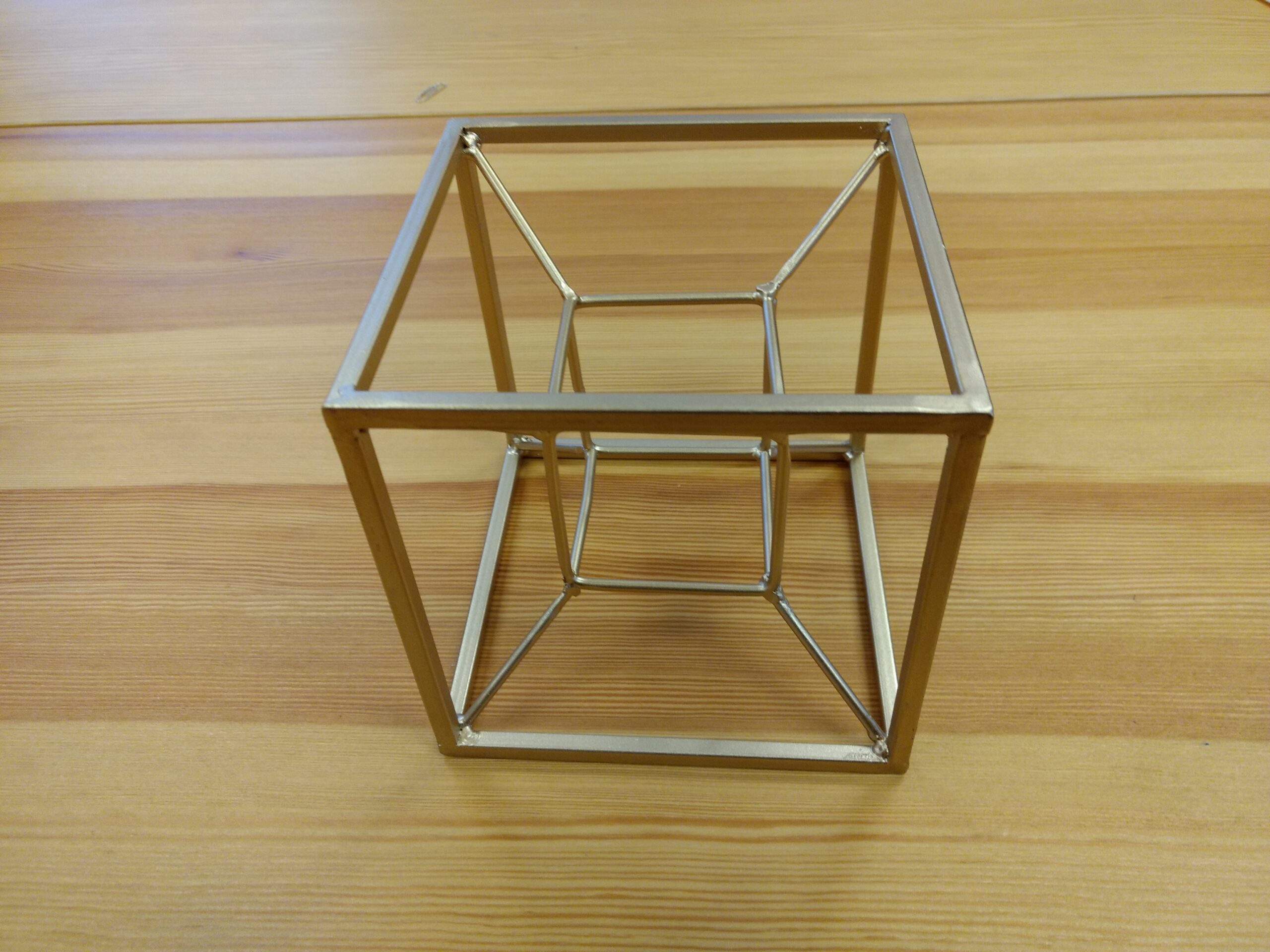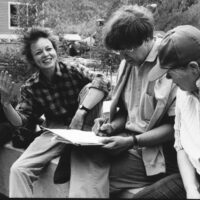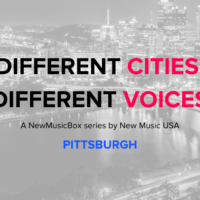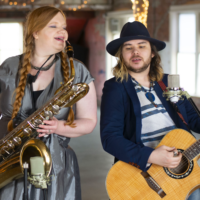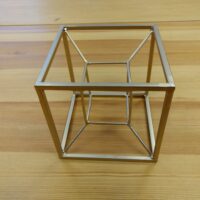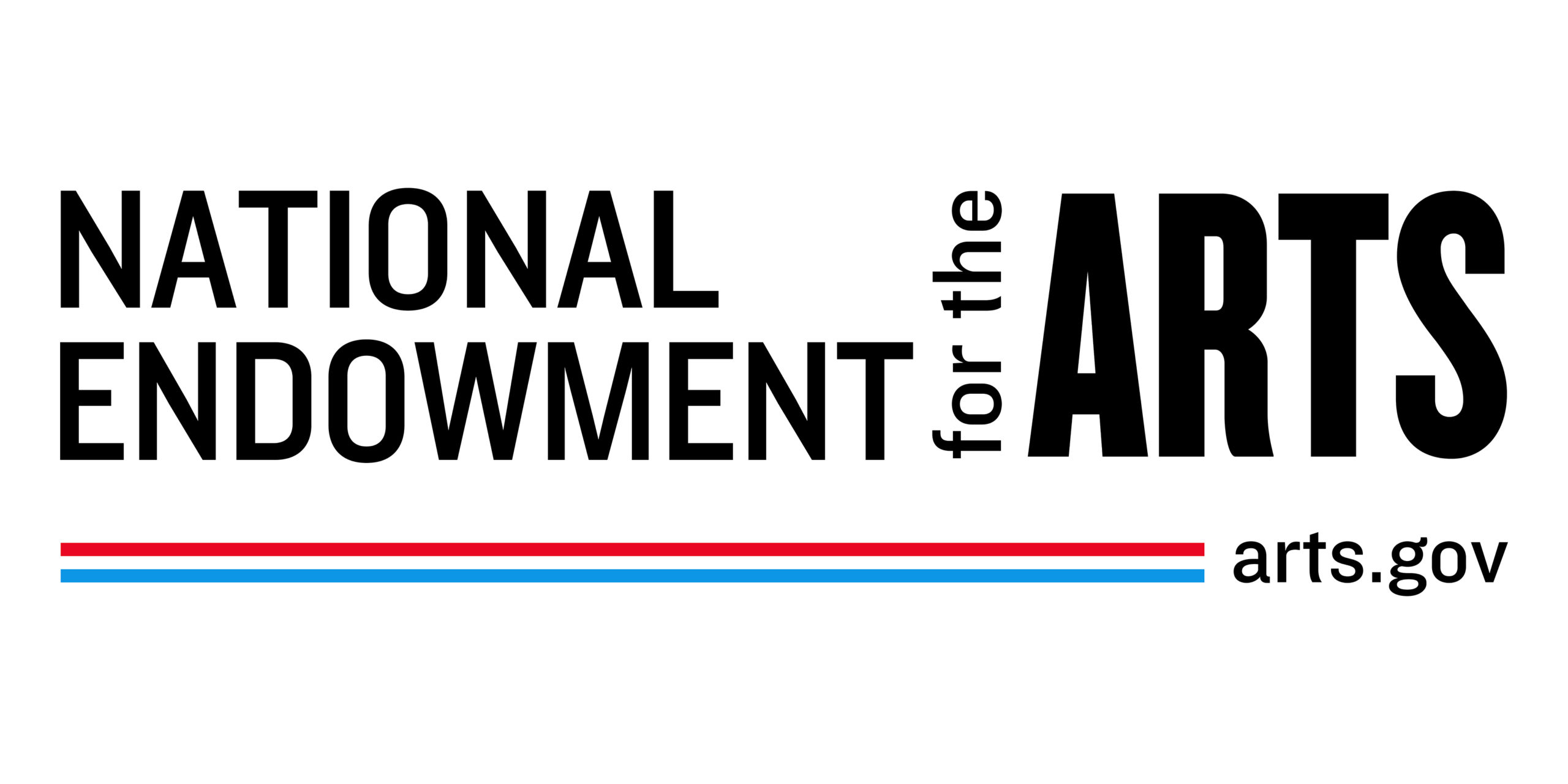
Mason Bates is among the winners of the 18th annual Heinz Awards, an honor which includes an unrestricted cash prize of $250,000. At 35, Bates—a composer noted for his integration of classical music with DJ culture and the use of electronics in his symphonic work—is one of the youngest-ever recipients of the award.

Today, advances in internet development, robotics, virtual reality, and social networking usher in with them the next generation of compositional methods. Most of these tools require nothing more than a high-speed connection and a little bit of time to learn and use. The possibilities feel limitless.

Ion Sound Project is a thoroughly engaging CD from top to bottom. If you’re interested in music that is for the most part harmonically tonal and rhythmically diverse, you’re sure to find a great deal of satisfaction in the world of Jeremy Beck.

Although in our discussions, Katherine and I had agreed that she would leave the performance implements visible in the gallery as part of the overall whole, I was delightfully surprised to find them officially displayed, complete with a tag identifying them as “Instruments for Playing Water.” Yes, that’s exactly what they are.

We don’t create or ultimately listen to anything in isolation. What we make as well as how we experience what others make is always informed by what is around it.

Much of what makes Cage Cage also makes New Age New Age. That discussion—framed around New Age sensibilities or not—is key to an honest portrait of John Cage. And the root of that particular conversation is Cage’s deep interest in Buddhism.

John Cage was a maverick in his field. He was running against the grain, breaking with a hegemonic tradition that was at odds with his Zen-informed principles. Charlie Parker, John Coltrane, and Ornette Coleman, while innovative, were part of a culture that was, and mostly still is, excluded from being part of that tradition’s world view.

One interesting (and sometimes frustrating) aspect of being a composer is the potential hybrid nature of our career models. While many career paths require one to have a diverse skill set, there are few paths that allow for, and in many cases encourage, an individual to pursue and engage in other careers simultaneously.

Five days after the death of colleague and friend John Cage, I produced and hosted a two-hour tribute broadcast on the New York City radio station WBAI-FM. Only a few of the many, many friends who were also close to him could be invited and the emotions of the moment were still raw. Now, all this time later, it’s hard to believe he’s no longer with us.

Taken together, a multifaceted portrait of Cage has taken shape in a way that no single concert could achieve.

Many of John Cage’s scores seem to allow performers a degree of freedom that often leads to interpretations that, by the composer’s own admission, do not reflect the spirit of the work. This is a problem of both attitude and notation. If we are to continue or reconstruct the tradition, we must look to the one performer in particular who defined and was defined by the performance practice of Cage’s music – the pianist, composer, and electronic musician David Tudor.

Sometimes, the thoughtful and respectful recreation of a work is the deepest form respect. Other times, taking that work, using it as a diving board to bounce on and leap from, and landing in a cannonball to splash the snoozing pool-side adults is a much more fitting nod. I think Cage would prefer the latter.

I would argue that objective truth is not only distinguishable, but that it should be valued and treasured. As citizens, we should strive towards the sort of skepticism that allows us to remain impartial as we determine the authenticity of the evidence laid out before us. But as artists, we can embrace the impossibility of true surety.

Reading the memoirs of Ernst Krenek while listening to a new boxed set of his five symphonies—recorded over the past two decades by the North German Radio Philharmonic Hanover and released in May by CPO—helps rekindle the Austrian-born American immigrant’s world of strength and beauty, revealing the tumultuous life and searing music of an unjustly overlooked composer.

The idea of comparing Cage to Rameau and Wagner, should lead us to think about Cage the same way as we look at any other composer from the past or present. What should the path then be for a would-be interpreter of Cage’s music? Performing a piece by Cage is no different from performing a piece by Mozart, except for the mechanics of the execution.

Eight years ago, Ann Millikan, who was born and bred in California, relocated to Minnesota. While the change has not affected her music per se, it’s completely changed her working process and her sense of community.

Last Sunday was the final day of the 2012 Charlie Parker Jazz Festival. All in all, there were eleven events spread over ten days and taking place at seven different locations. I was able to attend the last concert of the last day—a free outdoor event in Tompkins Square Park which is near Parker’s last official residence.

I do, on occasion, enjoy putting on a coordinated outfit and drinking from something with a stem prior to my fiddle intake, but for me this is more of a Thanksgiving/Presidents’ Day once-a-year deal than a monthly water bill situation. For my regular listening, I prefer smaller, less formal venues, and fortunately I’m not alone.

The Cabrillo Festival of Contemporary Music, which is unconventional in so many ways, proves that there can be an enthusiastic audience for contemporary music in a smaller community.

Learning the rules before breaking them can breed a certain timidity of thought, and it can actually teach students to mistrust their ears and instincts, which may be telling them something contrary to what the rules are saying.

Dyad is that rare musical game that owes nothing to the stagnant glut of Guitar Hero and Rock Band knock-offs—a new and decidedly high-octane way to interact with our senses, both high-tech and deeply expressive of the user experience.

Two years ago at this time, I offered some guidelines for composers about to embark on their first graduate degrees. This year I would like to add some further guidelines for students about to commence a new year of learning.

Some pieces of music that now seem impossible to perform will be child’s play in the future; others are purposely written that way to create a specific type of interpretation—one that audibly conveys the struggle of getting through it. But then there are pieces that are just unplayable; I might have written one.

My omission of vocalist Kaylé Brecher when I listed jazz artists who include some kind of socio-political messaging in their music must be rectified. Spirals and Lines, the latest CD from this Philadelphia-based singer, composer, arranger, lyricist, and educator who self-produces her music, is highly messaged.




